When you start treatment with ledipasvir is a direct-acting antiviral medication used to treat chronic hepatitis C virus (HCV) infection, typically combined with sofosbuvir. Also known as ledipasvir/sofosbuvir, it was approved by the FDA in 2014 and has since helped over 90% of patients clear the virus from their bodies. Unlike older treatments that required weekly injections and caused severe side effects, ledipasvir comes as a single daily pill. Most people finish treatment in 8 to 12 weeks. But knowing what to expect-not just the wins, but the small hiccups too-can make all the difference in sticking with it.
How Ledipasvir Works
Ledipasvir doesn’t kill the hepatitis C virus directly. Instead, it blocks a protein the virus needs to copy itself. This protein is called NS5A. When NS5A is shut down, the virus can’t multiply. Combined with sofosbuvir-which stops another viral enzyme called NS5B-the two drugs together stop hepatitis C from spreading in your liver. This combo is so effective that for most genotypes (especially genotype 1, the most common in the U.S.), cure rates hit 95% or higher.
What’s different now compared to 10 years ago? Back then, treatment lasted a year, involved interferon shots, and came with flu-like symptoms, depression, and extreme fatigue. Ledipasvir changes the game. No shots. No hospital visits. Just one pill, once a day.
What the Treatment Schedule Looks Like
You’ll take one tablet daily, usually in the morning with or without food. The tablet contains 90 mg of ledipasvir and 400 mg of sofosbuvir. That’s it. No extra pills, no complicated timing. The length of treatment depends on your specific case:
- 8 weeks if you’ve never been treated before, have no cirrhosis, and your viral load is low
- 12 weeks if you have cirrhosis, or if you’ve had treatment before and it didn’t work
- 24 weeks only in rare cases, like if you have advanced liver damage and previous treatment failures
Your doctor will check your liver function and viral load before you start. They’ll also test for hepatitis B, because if you have it too, ledipasvir can trigger a dangerous flare-up. That’s why blood tests before and during treatment aren’t optional-they’re lifesaving.
Common Side Effects and What to Do About Them
Most people tolerate ledipasvir really well. But some side effects do show up. The most common ones are mild:
- Fatigue (feeling tired, even after sleeping)
- Headache
- Nausea (usually goes away after the first week)
- Diarrhea or loose stools
- Insomnia or trouble sleeping
These aren’t signs the treatment isn’t working. They’re just your body adjusting. Most fade within two weeks. If nausea is bothering you, try taking the pill with a light snack. If fatigue hits hard, schedule your most demanding tasks for the morning. Don’t push yourself to exercise like you used to-rest is part of healing.
Less common, but more serious: dark urine, yellowing of the skin or eyes (jaundice), or sudden pain in your upper right abdomen. These could signal liver trouble. Call your doctor right away if you notice them. Also, if you’ve had hepatitis B in the past, your doctor should monitor you closely-even after treatment ends-because the virus can reactivate.
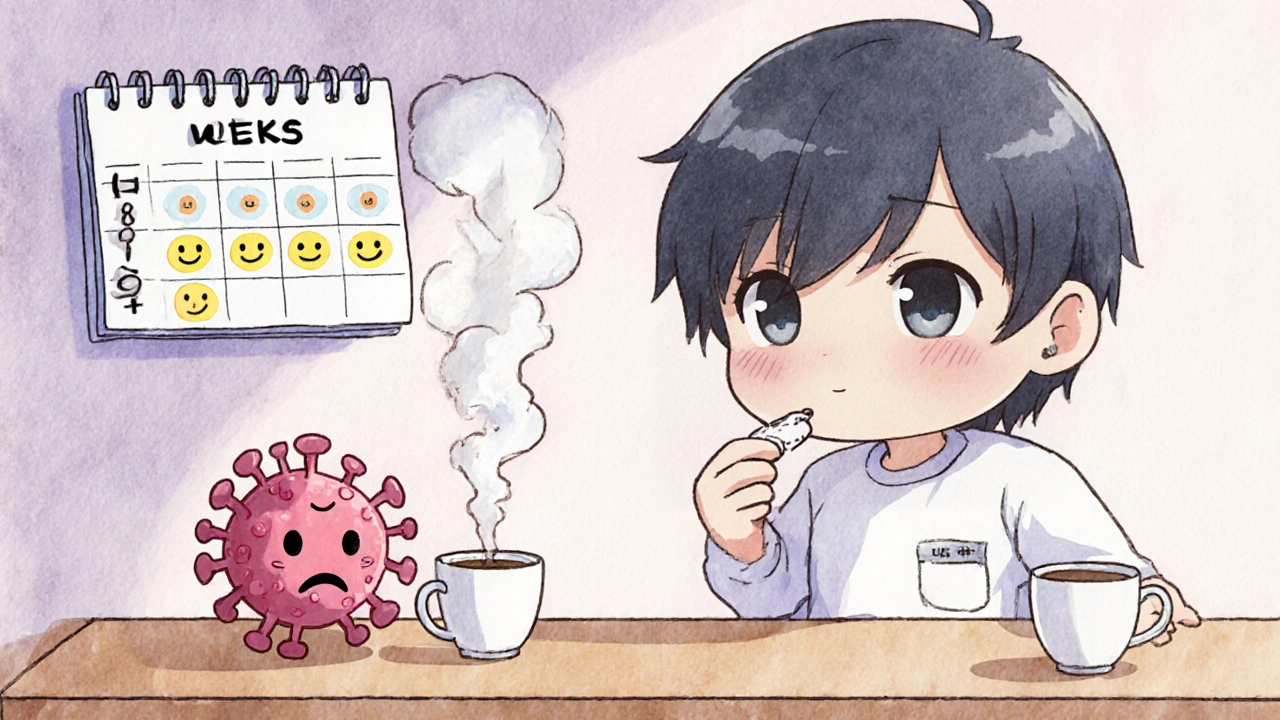
What You Can’t Do During Treatment
There are a few things you need to avoid while on ledipasvir. First, don’t take any other medications without checking with your doctor. Some common drugs can interfere:
- St. John’s wort (an herbal supplement for depression) can drop ledipasvir levels and make treatment fail
- Some acid-reducing drugs like omeprazole or antacids can reduce absorption-take them at least 4 hours before or after your ledipasvir pill
- Certain HIV meds, like rifampin or carbamazepine, can also interfere
Alcohol isn’t strictly banned, but it’s not smart. Your liver is already fighting hepatitis C. Adding alcohol is like pouring gasoline on a fire. Even moderate drinking can speed up liver damage and lower your chances of a full cure.
And don’t skip doses. Missing pills-even just one or two-can let the virus develop resistance. If you forget, take it as soon as you remember, unless it’s close to your next dose. Then skip the missed one. Never double up.
How You’ll Know It’s Working
You won’t feel the virus leaving your body. There’s no magic moment when you suddenly feel “cured.” That’s why blood tests matter. Your doctor will check your viral load at week 4, then again at the end of treatment. The goal? Undetectable HCV RNA. That means the virus is no longer measurable in your blood.
After you finish treatment, you’ll have one more test-12 weeks later. This is called SVR12: sustained virologic response at 12 weeks. If the virus is still undetectable at that point, you’re considered cured. No more hepatitis C. Your liver can start healing. Studies show that after SVR12, the chance of the virus coming back is less than 1%.
What Happens After You’re Cured
Getting cured doesn’t mean your liver is back to perfect. If you had cirrhosis before treatment, you’ll still need regular monitoring. Even after the virus is gone, scar tissue doesn’t vanish overnight. Your doctor will likely keep checking your liver enzymes, platelet count, and doing ultrasounds every 6 to 12 months.
And yes-you’re still at risk for reinfection. If you use injection drugs, share needles, or have unprotected sex with someone who has HCV, you can get it again. That’s why prevention doesn’t stop after treatment ends. Clean needles, safe sex, and avoiding shared razors or toothbrushes still matter.
Many people report feeling better after treatment-not just physically, but emotionally. Anxiety drops. Sleep improves. Energy returns. That’s not just placebo. Chronic hepatitis C causes inflammation that affects your brain, your mood, your muscles. Removing the virus lifts that fog.
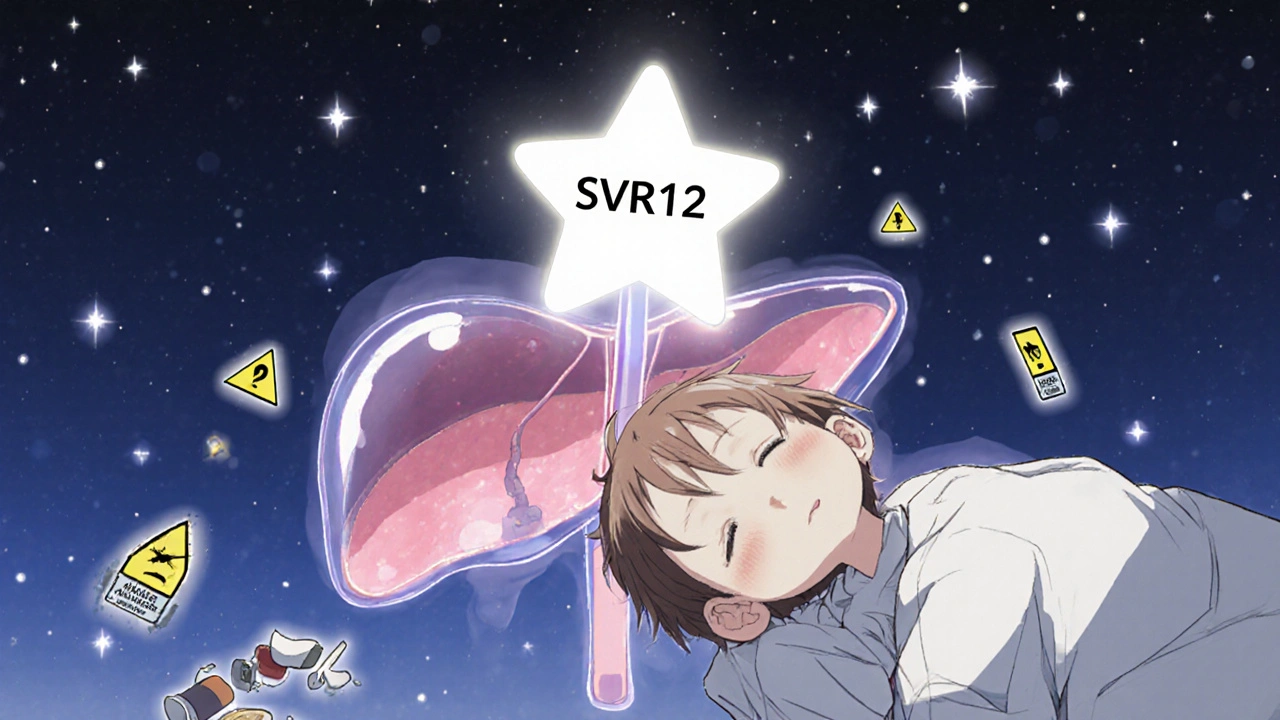
What If It Doesn’t Work?
Most people get cured. But if the virus is still detectable after 12 weeks post-treatment, you’re considered a treatment failure. That’s rare-under 5% of cases-but it happens. Reasons include:
- Not taking the pills consistently
- Drug interactions that lowered ledipasvir levels
- Having a rare HCV subtype that’s naturally resistant
- Advanced cirrhosis that made it harder for the drug to reach the virus
If this happens, don’t panic. Newer regimens exist. Drugs like velpatasvir, voxilaprevir, and pibrentasvir are now available and can treat cases that didn’t respond to ledipasvir. Your doctor will run a resistance test to see which mutations the virus developed. Then they’ll pick the next best combo. You’re not out of options-you’re just on a different path.
Real Stories, Real Results
One patient I worked with was a 52-year-old mechanic from Spokane. He’d been diagnosed with hepatitis C 12 years earlier but avoided treatment because of the old side effects. When he finally started ledipasvir, he was scared. He took the pill every morning with his coffee. He got headaches for the first week. He felt tired on weekends. But he didn’t stop. At week 12, his viral load was undetectable. At week 24, he went on a fishing trip with his son for the first time in a decade. He didn’t mention it at his follow-up-but his liver enzymes had dropped to normal. That’s the quiet win.
Another was a college student in Portland who didn’t tell anyone she was on treatment. She took her pill during study breaks. No one knew. She didn’t miss a dose. She graduated on time. Her final test showed no trace of HCV. She didn’t celebrate with a party. She just slept for 10 hours straight. Sometimes, the biggest victories aren’t loud.
Final Thoughts
Ledipasvir treatment isn’t glamorous. There’s no drama. No miracle cure story. Just a daily pill. A few side effects. A lot of patience. But it works. It’s one of the most effective treatments ever developed for a chronic disease. You don’t need to be perfect. You just need to be consistent.
Don’t let fear of side effects stop you. Don’t let shame keep you from asking questions. And don’t assume you’re fine just because you feel okay. The virus doesn’t always scream. But the cure? It whispers. And if you stick with it, you’ll hear it.
How long does ledipasvir treatment last?
Most people take ledipasvir for 8 to 12 weeks. The exact length depends on your hepatitis C genotype, whether you have cirrhosis, and if you’ve been treated before. Some cases may require 24 weeks, but that’s uncommon. Your doctor will decide based on your blood tests and medical history.
Can I drink alcohol while taking ledipasvir?
It’s not recommended. Alcohol puts extra stress on your liver, which is already working hard to fight hepatitis C. Even moderate drinking can reduce your chances of a full cure and may speed up liver damage. If you’re serious about getting cured, it’s best to avoid alcohol until after treatment and your doctor confirms your liver is healing.
Does ledipasvir cure hepatitis C for good?
Yes-if you complete treatment and your viral load stays undetectable 12 weeks after finishing (called SVR12), you’re considered cured. The chance of the virus returning is less than 1%. However, you can still get reinfected if exposed again, so prevention continues to matter.
What happens if I miss a dose of ledipasvir?
If you miss a dose, take it as soon as you remember-if it’s less than 18 hours since your usual time. If it’s more than that, skip the missed dose and take your next one at the regular time. Never double up. Missing doses increases the risk of the virus becoming resistant, which could make future treatments harder.
Do I need to get blood tests during treatment?
Yes. Before starting, you’ll need tests for liver function, hepatitis B status, and HCV RNA levels. During treatment, your doctor will likely check your viral load at week 4 and again at the end. After finishing, you’ll have a final test at 12 weeks to confirm cure. These aren’t optional-they’re how you know the treatment is working.
Can ledipasvir be used with other hepatitis C drugs?
Ledipasvir is almost always used with sofosbuvir as a fixed-dose combination. It’s not typically combined with other antivirals unless you’ve failed prior treatment. In those cases, newer drugs like velpatasvir or voxilaprevir may be added. Always consult your doctor before mixing any medications.
Is ledipasvir safe for people with kidney problems?
Yes. Ledipasvir is processed by the liver, not the kidneys, so it’s generally safe for people with mild to moderate kidney disease. Even those on dialysis can take it. But your doctor will still monitor your kidney function, especially if you’re taking other medications that affect the kidneys.
How soon will I feel better after starting ledipasvir?
Some people notice less fatigue and improved mood within a few weeks. But the biggest improvements come after treatment ends and the virus is cleared. Liver inflammation decreases, energy returns, and brain fog lifts. Don’t expect instant results-your body needs time to heal.
For most people, ledipasvir isn’t just a drug-it’s a second chance. It doesn’t promise perfection. But it delivers something rarer: a future without hepatitis C.
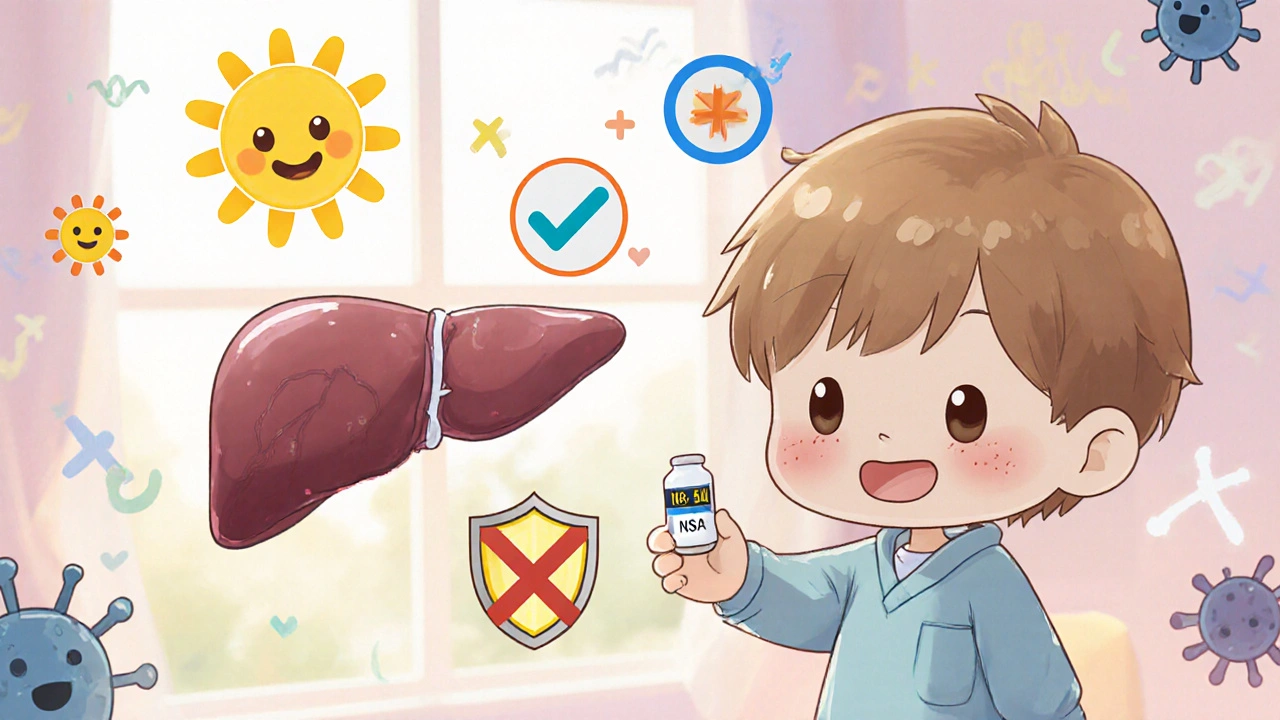

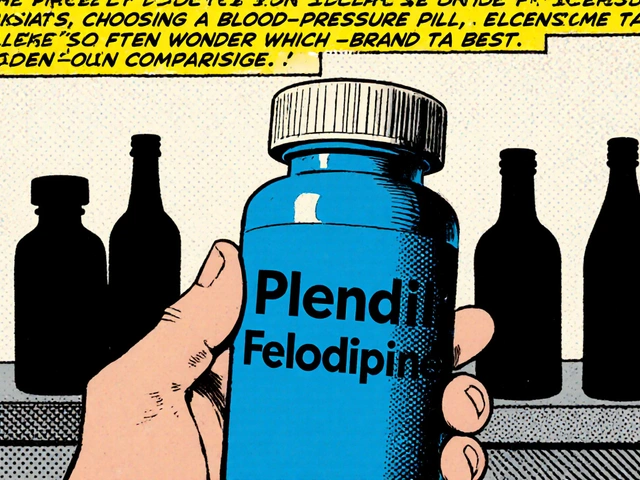
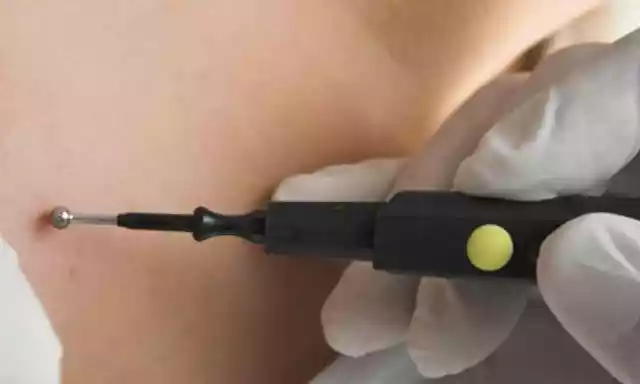
So let me get this straight - we’re talking about a single pill that cures a disease that used to require needles, depression, and a second mortgage? And the worst side effect is a headache? I’m starting to think the pharmaceutical industry was just waiting for us to stop being scared of needles before they actually fixed something.
Also, no more St. John’s wort? My grandpa’s herbal tea collection just got evicted.
one pill a day no shots no hospital no drama just chill and wait for your liver to do the heavy lifting
why did we waste 20 years on interferon when we coulda just been eating tacos and taking this
also who wrote this guide like a damn textbook i love it
As someone who grew up in a family where hepatitis C was whispered about like a curse, this feels like a quiet revolution.
My uncle avoided treatment for years because he thought the old drugs were worse than the disease. When he finally tried ledipasvir, he said it felt like someone turned off a hum he didn’t know was there.
Not a miracle. Just medicine doing its job. And that’s enough.
ok but like why are we still letting europeans have all the credit for science when this was 100% american innovation
we made a pill that cures a virus that haunted people for decades and now some guy in germany is writing a poem about it
also i misspelled a word on purpose because im cool
also dont drink alcohol even if you live in italy because america said so and america is right
Consistency beats perfection every time.
If you miss a pill, don’t panic. Just get back on track. No guilt. No shame.
Side effects? Real. But temporary.
SVR12 isn’t just a medical term - it’s your new freedom.
You don’t need to tell everyone you’re on treatment. You don’t need to be brave. Just show up for yourself.
This isn’t a battle. It’s a routine.
And routines save lives.
OMG I JUST FINISHED MY 12 WEEKS AND I FEEL LIKE A NEW PERSON
THE FATIGUE IS GONE THE BRAIN FOG IS LITERALLY VANISHED I CAN REMEMBER MY OWN PHONE NUMBER AGAIN
MY DOCTOR SAID I’M CURED AND I CRIED IN THE PARK WHILE FEEDING DUCKS AND NO ONE KNEW WHY BUT I DID
THIS ISN’T JUST MEDICINE - IT’S A REBIRTH
IF YOU’RE ON THE FENCE - JUST TAKE THE PILLS. YOUR FUTURE SELF WILL THANK YOU IN SLOW MOTION
Wait… so you’re telling me… the virus… just… disappears…?
And we don’t need to do anything else?
Like… no special diet?
No detox?
No crystals?
No chanting to the liver gods?
And the side effects are… mild?
…
That’s it?
That’s the whole thing?
…
I feel… betrayed by the universe.
Also, I’m still not drinking alcohol. But not because of the pill. Because I hate my liver and I’m not giving it a party.
USA made pill work better than indian medicine
indian doctors always say eat turmeric and yoga
now you say one pill
american science win
also alcohol bad
no debate
india still use old treatment
why?
because lazy
you take pill
you cure
you live
simple